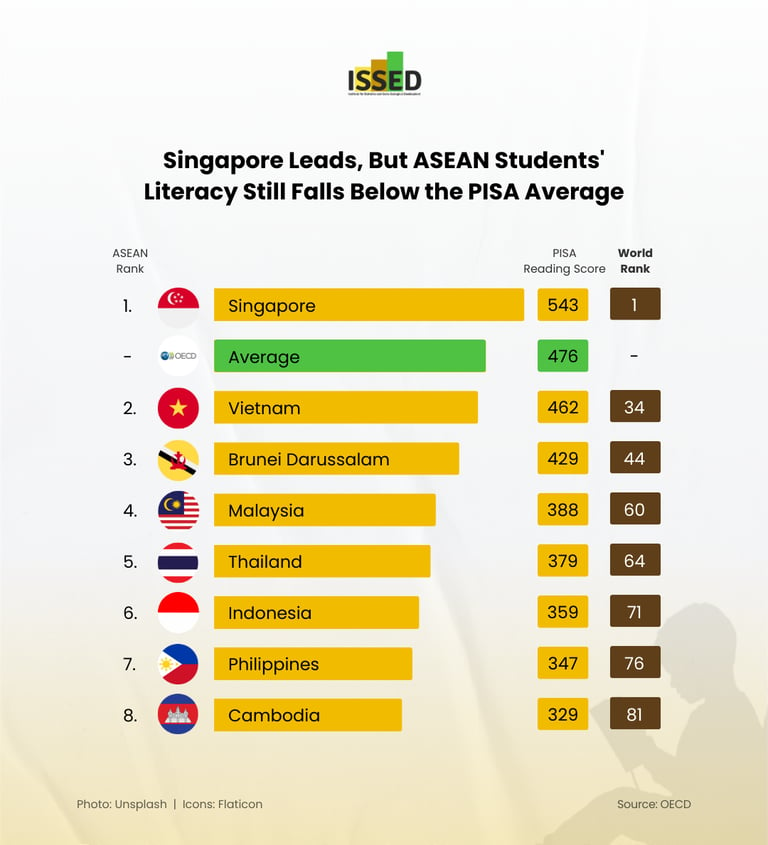The Development of PISA in Indonesia: Challenges and Hopes on International Literacy Day
INFOGRAPHICS
9/9/2024
Since first participating in the Program for International Student Assessment (PISA) in 2000, the quality of education in Indonesia has come under increasing scrutiny. PISA, a global survey conducted every three years by the OECD, assesses the skills of 15-year-old students in reading, mathematics and science. The survey provides an important snapshot of how a country's education system is preparing students for real-world challenges.
PISA measures reading literacy to determine how well students understand and make sense of texts, both narrative and non-narrative, such as graphs or tables. In the PISA 2022 report, Indonesian students' reading score only reached 359, down from 371 in 2018. This decline indicates that students are finding it increasingly difficult to understand complex texts.
In mathematics, PISA assesses students' ability to apply mathematical concepts in everyday situations. In 2022, Indonesia's math score reached 366, also a decline from 379 in 2018. This shows that Indonesian students struggle to identify problems and use mathematical tools to solve them.
In science, which measures students' ability to use scientific knowledge and critical thinking processes, Indonesia's score was 383 in 2022, a slight decline from 396 in 2018. Although the drop is not significant, it still shows that there is a lot of room for improvement.
More than 60% of Indonesian students scored at Level 1 in all three subjects. Level 1 represents very limited basic skills, where students can only understand simple concepts without being able to apply knowledge and interpret it in a broader and more complex context. On the other hand, the percentage of students who reached the highest levels (Levels 5 and 6) was no more than 7%. This suggests that Indonesian students are still struggling to absorb and process deeper and more challenging information.
This PISA data is a wake-up call for all of us. Indonesia's biggest challenge is how to improve the overall quality of education, especially in literacy and numeracy. Cross-sectoral cooperation - between the government, schools, teachers, parents and communities - is needed to design an education system that is relevant to the needs of the future.
On this International Literacy Day, we are reminded of the importance of literacy in building a brighter future. This article invites you, especially the younger generation, to think further: What steps can we take to improve the performance of Indonesian students in the next PISA? Let's find solutions together to improve our education system, so that future generations can compete globally with a strong foundation in literacy, math and science.


